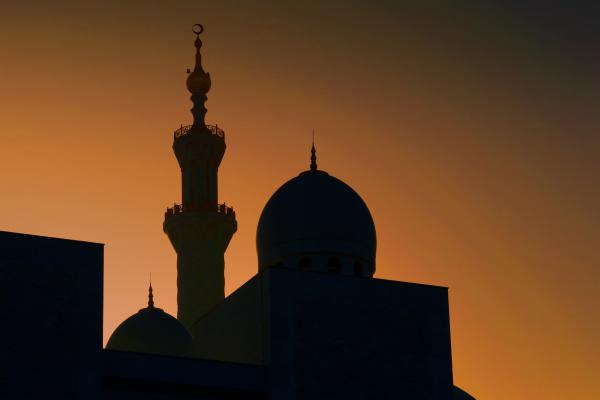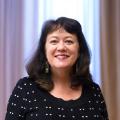Extremist groups like ISIS and Al Qaida are trying to radicalize young Muslims through well-produced and elaborate online videos and sweeping Twitter campaigns targeted at disaffected young men and women around the world.
Three London school girls recently ran away to join ISIS in Syria after encountering recruiters on Twitter. A Sunday school teacher in Washington state secretly converted to Islam and planned to leave home to join the only Muslims she knew — ISIS recruiters she encountered through social media. In Virginia, a local imam meets with young men and women whose families fear they will answer the call of ISIS sent through their cellphones.
As one member of the local law enforcement told our group of 17 international journalists, “There is a terrorist in your pocket and it is talking to you all the time.”
In the United States, the problem is relatively small. According to law enforcement officers, only about 100 American Muslims have been radicalized by ISIS or another Islamic extremist group and traveled overseas to fight with them. That’s out of a population of about five million Muslims nationwide.
There is some research to suggest that one of the most effective strategies in combating the radicalizing of local Muslim youth is for imams and other members of local Muslim communities to reach out to disaffected youth who are often confused about what Islam really teaches — peace.
But that news has apparently not reached some corners of Nashville’s Muslim community. When we visited a local mosque — I won’t name it because I don’t want to get anyone in trouble — the youth pastor told us all about how happy and engaged the kids at his mosque are.
“We don’t have a problem with radicalization here,” he said when asked about what he and other mosque leaders are doing to lessen the threat.
He then went on to chastise the press for not covering more positive aspects of Islam, like his interscholastic program for middle and high school kids. The president of his mosque seconded that emotion and a third member agreed.
More alarming, two more Muslim religious leaders who met with us the next day seemed to agree. When asked the same question, both said they felt it was “not fair” for the local community to answer for the ills of ISIS and al Qaida — which is true, but did not address the question.
But their fellow Muslim panelists did not agree.
“I am a realist,” said Daoud Abudiab, president of the Islamic Center of Columbia, Tenn.
“The truth is all youth are susceptible to going off track. There are efforts by organizations like Al Qaida and ISIS and they have reached into the U.S. through the internet. So yes, it is wrong for a Muslim leader in an Islamic center to say we don’t have a radicalization problem.”
Abudiab has faced down extremism before — from Christians. His mosque was burned to the ground by white extremists in 2008. The culprits — now in jail for committing a hate crime — left their calling card: graffiti in the rubble that read “White Power — we rule the world.”
That experience changed him, he said. Before the burning he thought of his community as the Muslim community. But in the wake of the fire, his community broadened to include the Presbyterians who offered the displaced Muslims their church as a place to worship, and the many locals who offered support as the mosque was rebuilt.
“What happened was my sense of community was redefined,” he said.
“It became the people who stood by us in this time.”
So perhaps it isn’t surprising that Abudiab redefined the radicalization problem.
“I also think it is wrong for church leaders to say we don’t have Christian groups who are becoming increasingly more militant,” he said.
“The biggest threat in the U.S. from militant individuals is not Muslims, it is Christians.”
Also true, at least in Tennessee. There have been 18 crimes termed as terrorist attacks by law enforcement in the state since 2001 and almost all of them were tied to right wing extremist groups.
The question, he continued, “is do Muslims deny radicalization or do they argue against Islamophobia which says only Muslims are susceptible to radicalization? That in itself is a form of Islamophobia and we have to acknowledge it.”
Then turning to Joshua Graves, a local evangelical pastor who was also on the panel, he continued, “I, as a Muslim, have no more responsibility for (shooter) Mohammod Abdulazeez in Chattanooga than Josh has for (shooter) Dylan (Roof) in Charleston. This is a community issue; this is not a Muslim issue.”
By the end of the discussion — which was not heated so much as passionate and intense — all of the panelists were nodding in agreement with Abudiab’s final statement on the issue.
“African-Americans didn’t defeat the racism of the civil rights era by fighting alone,” he said.
“And Muslims are not going to defeat radicalization alone. This is an issue for the whole community.”
I hope someone tells the youth pastor at the mosque.
This piece is part of a series of occasional posts by RNS national correspondent Kimberly Winston, who is on the road in Washington, D.C., Nashville, Tenn., Honolulu, Kuala Lumpur, Lahore and Islamabad, Pakistan with the 2015 Senior Journalists Seminar, sponsored by the East-West Center in conjunction with the U.S. State Department.
Got something to say about what you're reading? We value your feedback!

